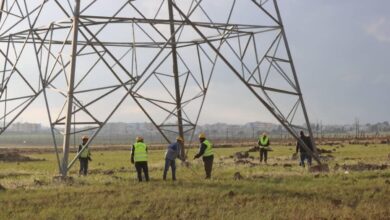ISPs warn of possible internet disruption

Nepali private sector internet service providers (ISPs) have again warned that services could be disrupted as the government has not provided them foreign exchange to pay their foreign vendors from whom they source the bandwidth.
It has already been a year since Nepali ISPs defaulted on payments for upstream services.
The Nepali ISPs said that Indian telecommunications firms have once again warned to settle their dues or face consequences.
A former parliamentary Public Accounts Committee had a few years ago ordered the government that internet service providers should be exempted from paying taxes on non-telecom components like web service, co-location, hosted service, disaster recovery, managed service, data centre, and cloud service.
Following the order, in a letter dated July 15, 2018, the licensing department of Nepal Telecommunication Authority wrote to the Inland Revenue Department requesting not to subject internet service providers to telecommunication charges for non-telecommunication services.
The committee had said that internet service providers do not have to pay royalties and Rural Telecommunications Development Fund charges for three fiscal years—2017-18, 2018-19 and 2019-20.
After the Auditor General, the constitutional body and the supreme audit institution of Nepal, pointed out that such fees should not be waived, and instructed recovery of the charges, the government wrote to the ISPs to clear the dues.
“The current Public Accounts Committee has ordered us to recover the dues from the ISPs. Unless they clear their dues, the ministry will not make recommendations for foreign currency,” an official at the Ministry of Communication and Information Technology, told the Post on condition of anonymity.
While the Public Accounts Committee of the past parliament had ruled that internet service providers should be exempted from paying taxes on non-telecommunications components, the Ministry of Communication and Information Technology rejected the ruling and declined to provide foreign exchange to the companies.
The ISPs make annual transactions totalling around Rs27 billion and pay more than Rs9 billion in revenue to the government under eight various headers.
“After months, Indian upstream service providers have again warned us that they would stop services if payment is delayed,” according to a member of the ISPs.
“The government needs to take the issue seriously. The issue is sensitive,” Binay Bohra, owner of Vianet Communication, an internet service providing company in Nepal, told a press meeting last Friday.
“Who will take the responsibility if Indian upstream service providers cut off the internet.”
Sudhir Parajuli, president of Internet Service Providers’ Association Nepal, said that the Indian upstream service providers have sought a letter of bank guarantee after Nepali ISPs were unable to pay their dues in foreign currency.
However, the Nepal Telecommunication Authority, the regulatory body, has asked the central bank not to provide bank guarantee letters either.
In December last year, Tata and Airtel, the Indian firms that provide upstream bandwidth to Nepali ISPs even threatened to cut off services from January 1, 2024, if the Nepali ISPs failed to clear the dues. However, the issue remains unresolved due to the change in the government, but the Indian firms have not disrupted their services at the request of Nepali ISPs .
Nepali ISPs buy 70 percent of their internet from Airtel. The ISPs are yet to pay around $30 million in dues to the Indian company.
In December last year, officials from India’s Tata and Airtel—the bandwidth providers—visited Nepal to discuss the issue as the dispute over the payment of tax dues escalated between the government and the ISPs.
Around 10.60 million people use the internet in the country and there are 20 ISPs in the country, including the state-owned Nepal Telecom. ISPs say more than 15,000 people are directly employed with them.



